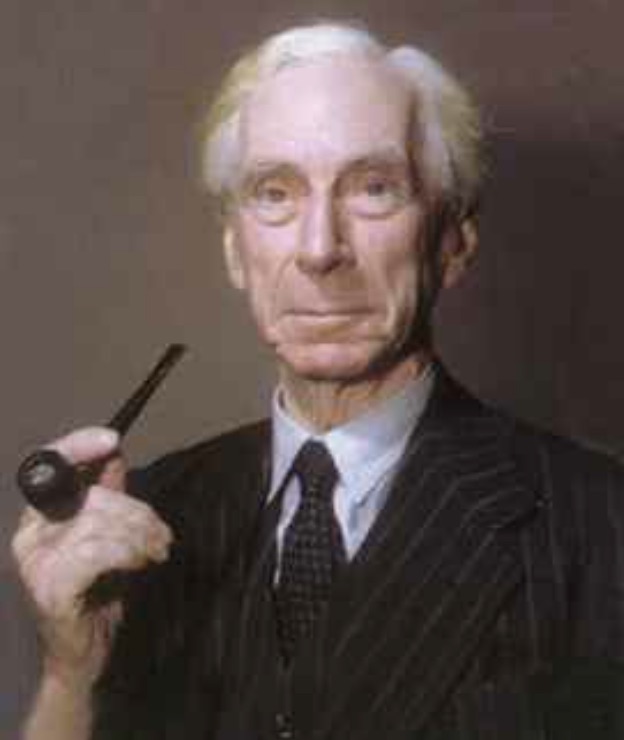
Bertrand Russell was born on May 18, 1872 in Ravenscroft, Wales. By the time Bertrand was 4 years old, he and his brother were orphaned, and went to live with their grandparents. After the death of his grandfather, in 1878, the boys were raised by his grandmother, Lady Russell. After years of private school education, Bertrand gained entry to Trinity College, Cambridge, where he achieved first class degrees in both in mathematics and moral sciences, though his greatest contribution grew out of his work as a logician. While Hilbert was attempting to achieve rigor by showing that all of mathematics could be deduced from a set of basic axioms and simple rules of inference, without using the concept of number or set, Gottlob Frege and Bertrand Russell were attempting to use set theoretic language and formal symbolic logic to achieve absolute rigor. Followers of this latter philosophy were said to be members of the logicist school.
In 1903, Frege completed the second volume of his grand opus that was to underpin mathematics using set theory, but as the tome was about to go to press, Bertrand Russell made him aware of a logical paradox (now known as Russell’s paradox) that results when the member of a set is defined in terms of the set itself. Before publication, Frege had just enough time to include the following disclosure:
A scientist can hardly encounter anything more undesirable than to have the foundation collapse just as the work is completed. A letter from Mr. Bertrand Russell put me in this position as the work was all but through the press.
To explain the Russell paradox without using set theory, Russell presented the following conundrum.
In a town in which every man is clean-shaven each male either shaves himself or is shaved by the barber. The barber is a man who shaves everyone who does not shave himself (and only those who do not shave themselves). Does the barber shave himself?
The table shows how we reach a contradiction no matter how we reason.
| The Barber Shaves Himself | The Barber Does Not Shave Himself |
| Since the barber shaves only those who do not shave themselves, the barber must be one of those who does not shave himself. This contradicts the statement that the barber shaves himself. | Since the barber shaves every man who does not shave himself, the above statement requires that the barber shave himself. This contracts the statement that the barber does not shave himself. |
Between 1910 and 1913, Bertrand Russell and Alfred North Whitehead published their giant three-volume treatise Principia Mathematica. This work attempted to lay the foundation for the development of all mathematical theorems from basic logical principles, while avoiding the kinds of set-theoretic paradoxes that had derailed Frege’s attempt. The ambitious goal of this seminal work was to establish a consistent set of axioms from which all mathematical theorems could be logically deduced. Russell was attempting to show that all mathematics is just logic, while Hilbert was attempting to show that mathematics, when formulated as a set of meaningless symbols connected to inevitable conclusions by laws of inference, is free of contradictions. Both quests were doomed to failure!
In 1931, Kurt Gödel, at age 25 published his doctoral thesis, On Formally Undecidable Propositions of Principia Mathematica and Related Systems, causing the programs of both the formalists and the logicists to collapse like giant skyscrapers whose foundations had crumbled under a tectonic shift. The jewel in the crown of Russell’s life’s work was lost, but Russell’s prodigious contributions to mathematical logic and analytic philosophy are still widely acknowledged.
